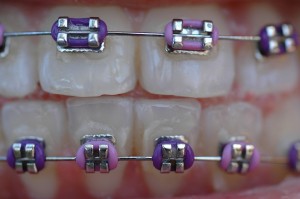Patient question: "What is malocclusion?"
March 8th, 2013

This is a question we hear all the time. Malocclusion, or what we call having a “bad bite,” is the improper alignment of teeth and/or jaws. When your teeth and jaws are not properly aligned, it may impact your bite, the ability to properly care for your teeth, your gum tissue health and even your appearance. Most people will experience some degree of malocclusion, but it generally is not severe enough to require orthodontic treatment. If your malocclusion is serious enough, however, treatment may be necessary to correct the issue.
Untreated malocclusion can lead undesirable mouth problems, including tooth decay, gum disease, or chipped and cracked teeth. The most common solution for malocclusion, of course, is orthodontic treatment. The actual course of treatment, including the length of time you will require braces, will be determined by severity of your malocclusion. The goal of your treatment is to move your teeth into the proper position and correct any misalignment in the jaw.
We use the most advanced technology in the field in order to ensure that you receive the best possible results. If you have any questions about malocclusion or about starting your orthodontic treatment, please give us a call!




 Millions of patients undergoing orthodontic treatment will not be smiling this holiday season, and not because they didn't get the gift they wanted. These are people whose teeth and/or braces fall victim to the hard, chewy, gummy or sticky holiday treats.
Millions of patients undergoing orthodontic treatment will not be smiling this holiday season, and not because they didn't get the gift they wanted. These are people whose teeth and/or braces fall victim to the hard, chewy, gummy or sticky holiday treats.




